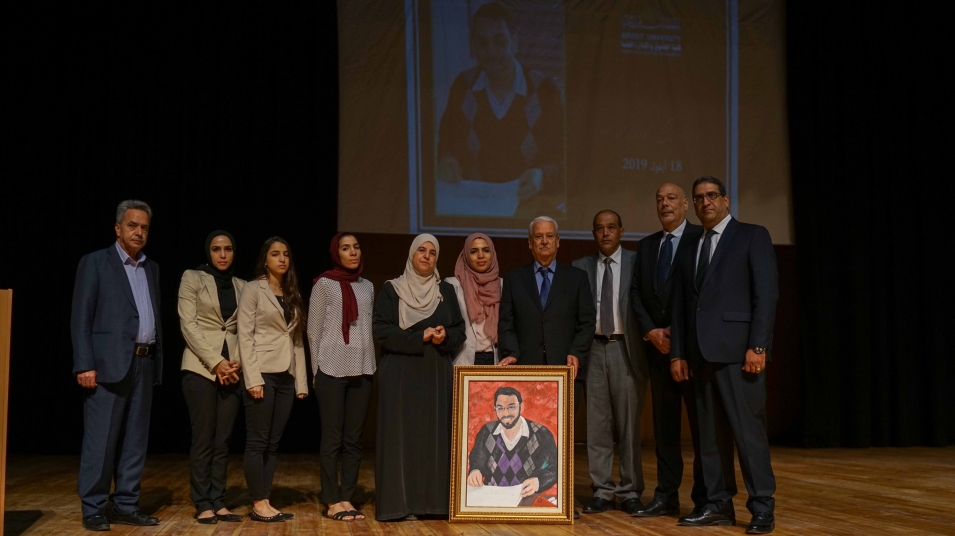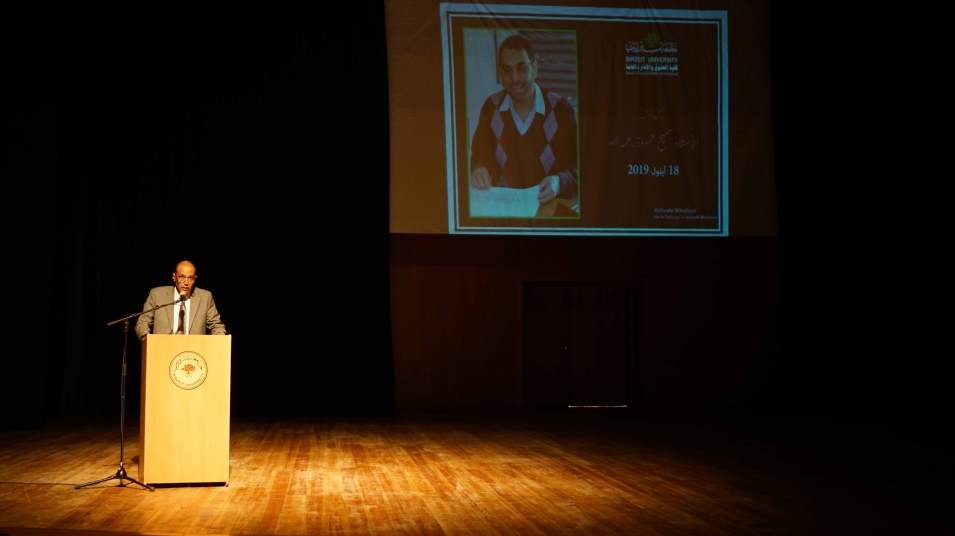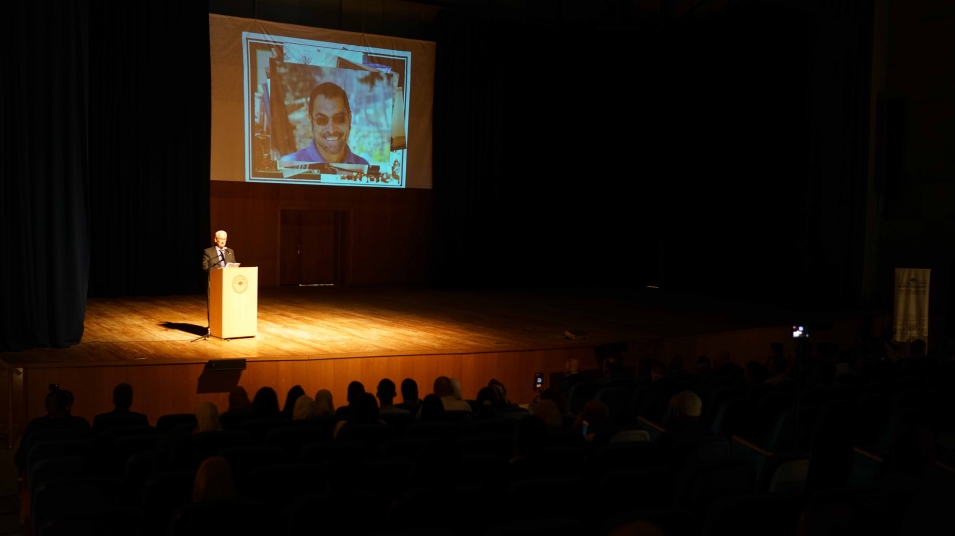University community commemorates professor, researcher Samih Hamouda
Birzeit University students, faculty, and staff members celebrated the life and work of Samih Hamouda, a professor of political science who passed away in May 2019 after a battle with cancer, in a ceremony held on the university’s campus on Wednesday, September 18, 2019.
Hamouda graduated from Birzeit University with an undergraduate degree in Middle Eastern studies in 1984, and obtained a master’s degree in political science from the University of South Florida in 1996. He was a candidate for a PhD in applied anthropology at the same university when he was arrested by US authorities in 2003, denying him the chance to defend his thesis and obtain the degree.
After a six-month trial in 2005 that ended in his acquittal, Hamouda returned to Palestine where he lectured at Birzeit University’s Department of Political Science, served as editor-in-chief of “Jerusalem Quarterly” ¾ in Arabic: “Hawliyat Al Kuds”, a magazine published by the Institute for Palestine Studies ¾ and authored many articles and books on the history of Palestine and the Palestinian struggle for freedom.
One of his latest publications is “Ottoman Ramallah: A Study in its Social History 1517-1918” (in Arabic), a book that charts the history of Ottoman Ramallah from the 16th century until the end of Ottoman rule in Southern Palestine in 1917. It examines the social fabric of Ramallah’s inhabitants during that era, using records of sharia courts in Jerusalem and accounting books that detail the taxes the Ottomans levied on land and people.
In his eulogy, President of Birzeit University Abdullatif Abuhijleh praised Hamouda as one of the university’s most prominent researchers and professors, saying that his 12-year tenure was characterized by dedication, integrity, and passion for Palestine.
Abuhijleh added that Hamouda was fervently active in the broader Palestinian community and its various institutions, helping to push forward research and publications on the history and politics of Palestine.
Yaser Amouri, a professor of law who previously served as dean of the Faculty of Law and Public Administration, lauded Hamouda’s achievements at Birzeit University, noting that he left a mark that will last forever in the minds of students and professors alike.
He noted that Hamouda approached academic and research topics with unmatched courage, passion, and persistence, which helped propel knowledge production at the univeristy’s political science department and the faculty of law.
Murad Shaheen, chair of the Department of Political Science, applauded Hamouda’s passion for knowledge and his eagerness to raise awareness of Palestinian history. “I first took note of that passion when I met Hamouda — at the time chair of the department — in his office that was filled to the brim with old, yellowed papers which he turned into research papers like clockwork,” he said.
Salim Tamari, a senior fellow at the Institute for Palestine Studies, highlighted Hamouda’s efforts as editor of the institute’s “Hawliyat Al Kuds,” a magazine that has become a crucial reference work for those interested in Palestinian social history, he said.
Tamari added that the institute will establish an archival collection of social history papers under Hamouda’s name that will serve as a tribute to his achievements and accomplishments and help Palestinian researchers.
Sameh Abu Awwad, head of Birzeit University's Union of Employees and Professors, said that ever since he met Hamouda during his time in the United States, he knew him as a generous, dedicated, charitable person with principles and morals. Hamouda’s great passion for knowledge, he added, grew even stronger at Birzeit University, just like his penchant for helping others, be they students, fellow professors, or university staff.
Weeam Hamouda, Samih Hamouda’s daughter and an assistant professor at the university’s Institute of Community and Public Health, thanked Birzeit University’s community and the Faculty of Law and Public Administration for their heartfelt support and tribute to her father whom she called a “great father with a burning passion for knowledge and a deep love for Palestine.”
Several other speakers took to the stage to pay tribute to Hamouda and to the impact he had on their lives, including Professor Emeritus Kamal Abdel-Fattah; Rassem Khamaisi, a professor of urban design at the University of Haifa; Mahmoud Yazbak, a professor of Middle Eastern studies at the University of Haifa; Abbas Nimer, a historian and researcher; and Marah Khalaf, head of the club of political science students.










